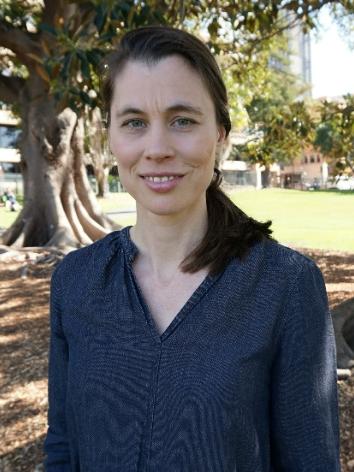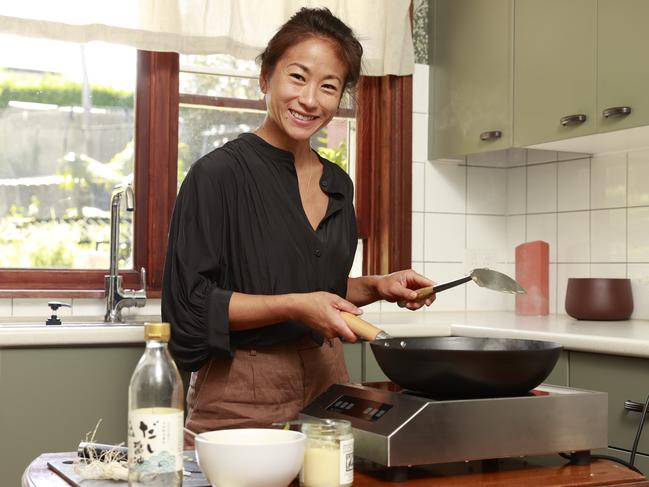New plan to take gas out of Aussie kitchens
A group of celebrity chefs and property developers want gas connections to be phased out of new buildings - but Aussies say they like their kitchens just as they are. Have your say.
National
Don't miss out on the headlines from National. Followed categories will be added to My News.
They’ve been a staple of our kitchens for generations, and it seems Aussies will not give up their gas appliances without a fight.
On Tuesday, property firms Lendlease and GPT Group will come together to help launch the Global Cooksafe Coalition, with plans to phase out gas ovens and stovetops, citing health and environmental concerns.
The property giants have plans to stop installing gas kitchen appliances in new builds in all OECD countries by the end of the decade, and to only do all-electric retrofits in existing properties by 2040.
The campaign has the support of high-profile chefs including Neil Perry, Darren Robertson, Palisa Anderson, Rob Roy Cameron, William Gleave and James Edward Henry. At least one other major Australian property developer is expected to join the Coalition in the next few months, sources said.
But readers have rejected the idea, with a masive majority saying people have the right to use natural gas in their own home.
With more than 1900 readers voting in our online poll by 11.30am AEDT, more than four in five (83 per cent) said they opposed the plan to phase out gas kitchens.
Just 11 per cent said they were in favour of the campaign, while 6 per cent of readers said they were undecided on the issue.
Readers also expressed their opposition to the gas plan in comments, with some labelling it “insane” and “idiotic”.
One reader commented that gas “has been the saviour of many people duting the floods when power was out”, and that “we demonise everything these days”.
Some 76 per cent of poll respondents said they cooked with gas at home - slightly higher than the estimated 65-70 per cent of Australians who use gas domestically.

Chef Neil Perry said electric was “definitely the future of cooking” in both homes and commercial kitchens.
“It’s just cleaner, it’s more efficient and it’s definitely more beneficial for the environment. Everything tends to be neater and cleaner without gas,” he said.
Lendlease Global Head of Sustainability Cate Harris said electrification across operations was “essential” for the company to hit its goal of absolute zero carbon emissions by 2040.
“While the transition to electric cooking powered by renewables will take time, it’s already underway at our new commercial development Victoria Cross Tower in Sydney, and we’re looking forward to working alongside our Coalition partners to drive and accelerate industry change,” she said.
Dale O’Toole from GPT said all-electric kitchens “potentially present financial savings in new developments” and suggested moving away from gas would protect owners from having outdated appliances as the transition to renewable energy picks up momentum.

While the Global Cooksafe Coalition targets appliances in the kitchen only – so gas hot water or heating in the home would still be possible – several Australian jurisdictions are aggressively pursuing plans to electrify homes completely.
From next year, ACT infill developments will not be connected to the network, while Victoria has plans to take gas out of schools and hospitals, and from 2023 it will drop incentives for gas home appliances.
Why the moves against gas
The moves have been prompted by concerns over the health impacts of gas in the home, as well as the greenhouse emissions caused by natural gas.
Dr Kate Charlesworth from the Climate Council said cooking with gas was estimated to be responsible for up to 12 per cent of the childhood asthma burden in Australia, and a recent California study showed home gas stoves were associated with elevated levels of benzene, a known carcinogen.
“Parents would be shocked to learn that a child living with gas cooking in the home faces a comparable risk of asthma to a child living with household cigarette smoke,” Dr Charlesworth said. “Gas – just like coal – is a fossil fuel that’s driving the climate crisis. It has no place in our homes. We need to be doing everything possible to improve health outcomes for our children, and that means getting gas out of our homes as well as out of our energy mix to protect future generations from worsening climate impacts.”
Gas barbecues did not have the same risk profile as gas stovetops as they were outside, Dr Charlesworth said.
The gas industry hit back at the health claims, with Gas Energy Australia (GEA) CEO Brett Heffernan saying they were “disingenuous” and “based on overseas examples, where standards are nowhere near Australia’s rigorous requirements”.


Mr Heffernan said claims that switching to an all-electric household would save money were also bogus.
Recent modelling commissioned by GEA showed for homeowners who convert to high-efficiency electrical appliances, “it would take more than 12 years to get a return on investment, for a relatively small reduction in their CO2 output,” Mr Heffernan said.
“People, and developers, need to go in with their eyes open. If some can afford to splurge on high-end electrical appliances, they can make a modest CO2 saving. But you have to ask yourself, what’s the point of switching when the carbon saving is marginal and significantly more expensive or, indeed, actually higher emitting than sticking with gas?”
It’s time to make the switch: Thai chef
Defenders of gas cooking sometimes insist they simply can’t get the heat they need for a stir fry from an electric stovetop, but after speaking to Palisa Anderson, you might wonder if they are ever-so-slightly kidding themselves.
“Food tastes better in a restaurant because we control the heat very precisely. Good induction means you can replicate this in the home kitchen and get very high heat, very low heat and excellent control. For example, most home gas stoves don’t get hot enough to cook a stir fry, and good induction is a step up,” she said.

The director of the award-winning Chat Thai restaurant group said 10 or 20 years ago, she would “probably have been the first” to disparage induction cooking, but she is now investigating it both for her home as part of a renovation, and in her restaurant kitchens.
“In terms of home cooking, I’ve not come across anything that I can’t cook on induction that I would on gas,” she said. “Considering where we are now in climate action and what we’ve been living through, I think it’s not a big stretch to ask people to really look at the data, to really look at how [gas] affects the environment.
“At the end of the day … if the flavour of the food doesn’t change, then I don’t see how it is gong to be too much of an ask.”
Commercially, finding non-gas alternatives for wok cooking was more of a challenge than in the home, Ms Anderson admitted, with chefs and customers chasing that traditional wok hei (“breath of the wok”) flavour. But the technology for electric wok cooking was only going to improve because the demand was there, she said.
“We are going to have to learn to move the food around the wok,” she said. “The wok hei doesn’t come from that gas, it actually comes from the fats and the sugars and the caramelisation and of the wok itself.”
In addition to the environmental, health and economic benefits of using clean energy, Ms Anderson said electric stovetops had one other advantage over gas.
“They’re easy to clean,” she said. “You don’t have to fiddle with taking apart your gas heads and your nozzles. You finish cooking and you wipe it down, and that’s it.”





